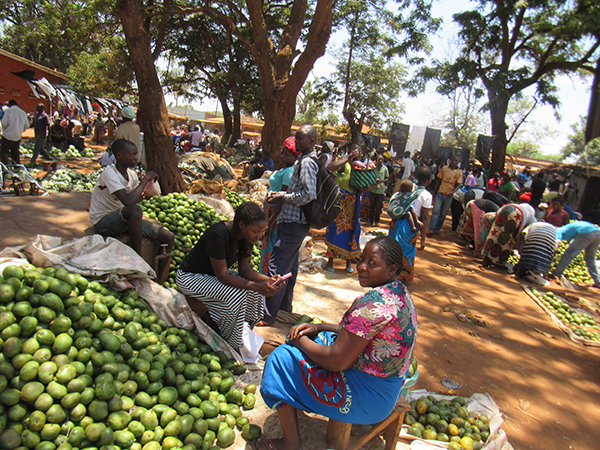NAPAS: Malawi Value Chain Studies Inform Selection of Value Chains to Be Developed under the World Bank Agricultural Commercialization Project
At the request of the Ministry of Agriculture, NAPAS: Malawi conducted several value chain studies to guide further agricultural investments.
From October 3-5, 2018, the Ministry of Agriculture, Irrigation and Water Development (MoAIWD) and the Ministry of Industry, Trade and Tourism gathered 24 stakeholders representing the following organizations: National Association of Smallholder Farmers in Malawi (NASFAM), Farmers Union of Malawi (FUM) Malawi Chambers of Confederation of Commerce and Industry (MCCCI) Malawi Investment and Trade Centre (MITC) Enterprise Development Fund (EDF) the National Aquaculture Center; Departments of Fisheries, Livestock, Crop Development and Planning Services in the MoAIWD; representatives of the private sector, including the Malawi dairy industry and horticulture industry and a representative of farmers. The stakeholders were gathered to select/rank several value chains that the Agriculture Commercialization Project that the two Ministries are implementing, should promote. The New Alliance Policy Acceleration Project was asked to present the value chain studies that the Ministry requested them to conduct as part of evidence-based decision-making in the process of selecting appropriate value chains to be developed. The Director of Crop Development, Dr. Godffrey Ching’oma on behalf of the Secretary for Agriculture, Irrigation and Water Development, opened the workshop.

The value chains that were presented by the NAPAS team included: Pigeon pea, Groundnuts, Roots and Tubers (Cassava, Irish potatoes, Sweet potatoes and Yams), Banana, Macadamia, Tea, Coffee, Tomato and Mango. The Aquaculture Center presented a fish/aquaculture value chain study while the Shire Highlands Milk Producers Association (SHMPA) and the Central Region Milk Producers Association (CREMPA) presented on the status of the dairy value chain. The National Coordinator of the Agriculture Commercialization Project, Dr. Ted Nakhumwa presented on the scoring methodology that was developed to rank these value chains. The participants were then asked to score the value chains that were presented using the information provided by the studies. The participants were also asked to score other value chains that were not among those presented, based on their knowledge of those value chains. Most participants were not able to provide a score on the rest of the value chains, except soy beans, which all participants felt that they had enough information to score it, based on their knowledge of the crop and its value chain status. It was actually very interesting to observe that the participants did not want to be making guesses on how a crop should be ranked, before they are provided with the right information to makes such decisions. In the end, soya beans was ranked highest, followed by groundnuts, fisheries, bananas, tea, coffee, diary, cassava, mangoes and macadamia. Interestingly high value crops did not make the top list partly because of lack of information on them as available value chain studies did not include most of the high value crops. The workshop participants advised that it would be appropriate for the Agriculture Commercialization Project to quickly commission several high value crop value chain studies that can be ranked using a similar methodology to guide the project in coming up with priority value chains to be promoted/developed later.
In her closing remarks, the Deputy Director of Private Sector Development in MoITT Mrs Esther Mwimba, commended the National Coordinator of the Agriculture Commercialization Project in building upon existing value chain studies rather than starting new value chain studies altogether, to inform selection of value chains to be promoted/developed under the Project. This was commended as the right approach, where resources have been saved and will instead go towards actual development of the value chains on the ground. She commented that most projects totally ignore the studies that have recently been conducted and venture into duplicating efforts and wasting project money.



 Print
Print Email
Email